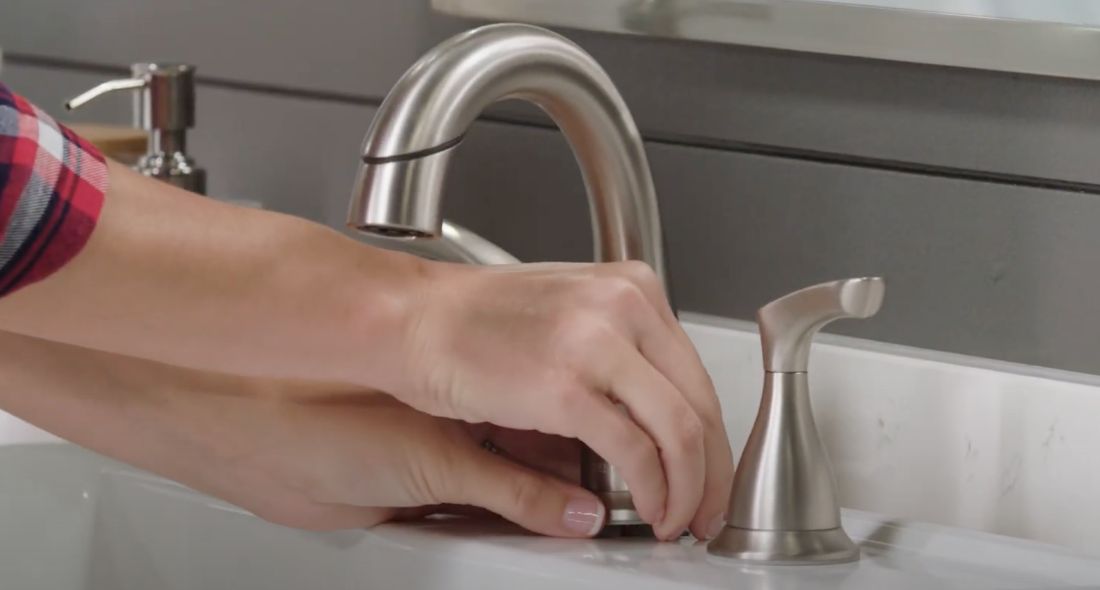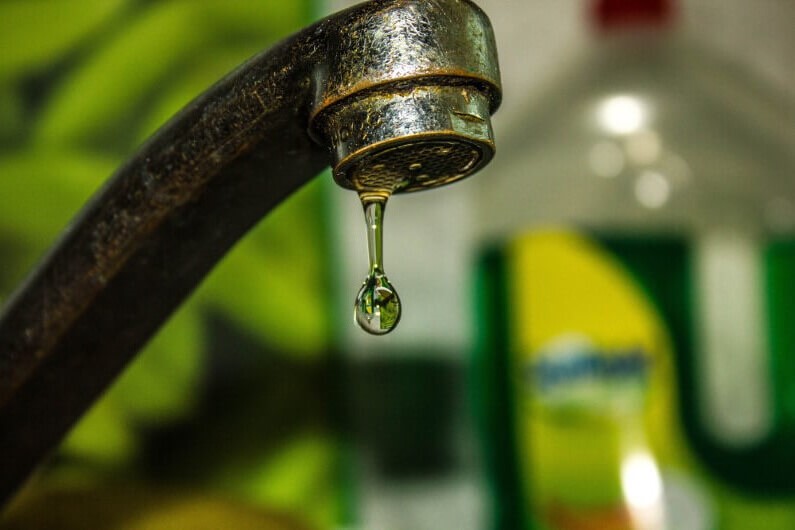Which It's Essential to Fix a Faulty Faucet
Which It's Essential to Fix a Faulty Faucet
Blog Article
We have encountered this article on How to Fix a Dripping or Leaky Faucet listed below on the web and think it made good sense to discuss it with you on this site.

Leaking faucets might appear like a minor aggravation, yet their impact exceeds just the inconvenience of the audio. From drainage to incurring unnecessary financial costs and health and wellness risks, overlooking a leaking tap can result in various effects. In this short article, we'll explore why it's crucial to address this typical home concern without delay and successfully.
Waste of Water
Environmental Impact
Leaking taps add significantly to water wastage. According to the Environmental Protection Agency (EPA), a solitary tap dripping at one drip per secondly can waste more than 3,000 gallons of water each year. This not only stress water resources however also influences ecosystems and wild animals dependent on them.
Financial Costs
Boosted Water Costs
Beyond the ecological effect, trickling faucets can blow up water costs substantially. The built up wastage gradually converts into greater energy expenditures, which could have been prevented with prompt repair work.
Potential Residential Or Commercial Property Damage
Additionally, prolonged trickling can cause harm to components and surface areas surrounding the tap. Water build-up can create staining, corrosion, and also architectural concerns if left neglected, leading to additional fixing prices.
Wellness Issues
Mold and Mildew Growth
The consistent existence of wetness from a leaking faucet develops a perfect environment for mold and mold growth. These fungi not just jeopardize indoor air top quality but likewise posture health and wellness threats, specifically for individuals with breathing conditions or allergies.
Waterborne Conditions
Stagnant water in dripping taps can become a breeding ground for germs and other pathogens, enhancing the threat of waterborne illness. Pollutants such as Legionella bacteria prosper in stationary water, potentially leading to serious diseases when consumed or inhaled.
Do it yourself vs. Expert Repair
Benefits and drawbacks of DIY Repair
While some may attempt to repair a trickling faucet themselves, do it yourself repairs include their very own set of difficulties. Without correct understanding and devices, do it yourself attempts can intensify the issue or result in insufficient repair services, extending the issue.
Benefits of Employing a Professional Plumber
Working with a professional plumber makes sure that the underlying source of the dripping faucet is resolved effectively. Plumbings possess the know-how and equipment to identify and repair faucet issues successfully, saving time and lessening the risk of additional damages.
Step-by-Step Guide to Repairing a Dripping Faucet
Devices Needed
Prior to trying to take care of a trickling faucet, gather the required devices, consisting of a flexible wrench, screwdrivers, replacement parts (such as washing machines or cartridges), and plumber's tape.
Usual Faucet Issues and Their Solutions
Recognize the type of faucet and the certain problem triggering the drip. Typical troubles include worn-out washing machines, rusty shutoff seats, or malfunctioning O-rings. Refer to manufacturer guidelines or on-line tutorials for step-by-step assistance on repairs.
Safety nets
Routine Maintenance Tips
To avoid dripping taps, carry out routine upkeep such as cleaning aerators, inspecting for leakages, and changing worn-out parts promptly. Furthermore, take into consideration setting up water-saving devices or upgrading to more effective fixtures.
Relevance of Prompt Services
Dealing with trickling faucets as quickly as they're seen avoids more water waste and prospective damage, eventually conserving both water and cash in the future.
Influence On Property Value
Understanding of Well-Maintained Home
Keeping a building in good condition, consisting of dealing with maintenance problems like dripping taps, boosts its perceived worth and charm among potential purchasers or renters.
Influence on Resale Worth
Residences with well-kept plumbing components, consisting of faucets, command greater resale worths in the property market. Addressing dripping faucets can add to a favorable perception during property evaluations and settlements.
Environmental Responsibility
Private Payment to Preservation
Taking duty for dealing with trickling faucets aligns with more comprehensive efforts towards water conservation and environmental sustainability. Every person's actions collectively make a significant effect on protecting valuable resources.
Lasting Living Practices
By prioritizing prompt repair work and taking on water-saving routines, people add to lasting living methods that profit both present and future generations.
Final thought
Addressing a dripping faucet surpasses plain comfort; it's a vital step towards preserving water, lowering economic expenses, and safeguarding wellness and building. Whether with do it yourself repairs or expert aid, taking action to fix leaking faucets is a little yet impactful method to promote liable stewardship of resources and add to a healthier, extra sustainable future.
How to Fix a Leaky Faucet: Step-by-Step Repair Guide
A leaky faucet may seem like a simple annoyance, but if it's not fixed promptly, that leak could cost hundreds to potentially thousands. From water damage to mold, mildew, and high water bills, even a tiny leak can be catastrophic if left unattended. Damage like this can even affect the overall value of your home, so it's important to take the right approach for leaky faucet repair. You may need the help of a plumber in some cases, but we've got a few tips you can try on how to fix a leaky faucet before calling the pros.
Four Faucet Types
When you're learning how to fix a leaky faucet, the first step is knowing what kind of faucet you're working with! There are four common types.
Cartridge Faucets
Cartridge faucets come in one- or two-handled varieties. In one-handled cartridge faucets, hot and cold water combines in a single cartridge. In the two-handled versions, hot and cold water are controlled separately and mixed in the faucet.
Ball Faucets
Ball faucets have a single lever you push up and down to adjust the pressure and rotate to change the temperature. A slotted metal ball controls the amount of water allowed into the spout.
Compression Washer Faucets
They're the oldest type of faucet, but they're still used in many homes — especially older ones. Compression faucets have two separate handles that, when turned, raise or lower the washer that seals a water valve. This valve stops water from flowing through the faucet when it is turned off.
Disc Faucets
Disc faucets rarely need to be repaired due to their maintenance-free design. The water flow is controlled by two discs — the upper one raises and lowers against a fixed lower disc, creating a watertight seal. If your disc faucet starts leaking, you may need to replace the seals or clean residue buildup from the inlets.
Fixing a Leaky Faucet
Step 1: Turn Off the Water
Whether you're learning how to fix a leaky bathtub faucet or how to fix a leaky kitchen faucet, always turn off the water supply to your working area when you're fixing a leak. The last thing you want is a flood added to your list of things to fix.
Look for the shutoff valves below your sink or around the tub and turn them clockwise to stop the water flow. If your faucet doesn't have shutoff valves, you may need to turn off the water for the whole house. Check to make sure it's off by turning the faucet on. If nothing comes out, you're ready to start the repair.
Step 2: Take Apart the Faucet
How you disassemble your faucet depends on the type of fixture you have. You can use a flathead screwdriver to remove the caps on top of the handle or handles for cartridge and compression faucets. Inside, you should see handle screws. Unscrew these with a screwdriver to remove the handle.
Disc- and ball-style faucets will typically have an inlet screw near the handle, and removing that will reveal the interior of the faucet.
Detach the Valve Stem
For cartridge- and compression-style faucets, you'll see the inner valve stem or cartridge once you remove the faucet handles. If you have a compression faucet, unscrew the brass valve stem. If you have a cartridge faucet, pull out the cartridge. If your cartridge has been in place for a while, it may require some tools or extra force to remove it due to mineral deposits.
Examine and Replace Parts
Once you've removed the parts, check them out to confirm what needs to be replaced. You may see corroded rubber washers, O-rings, stems, or cartridges. On a ball-style faucet, check the seats and springs for damage.
If you need to repair a leaky disc faucet, check the inlet and seals on the lower disc.
Once you determine what parts must be replaced, visit your local hardware store. Bring the damaged parts with you to ensure you can purchase the correct components to replace them.
Clean Valves and Faucet Cavity
If you've removed a stem or cartridge, you may notice mineral buildup in the faucet's threads. Use white vinegar to clean the valve seat by soaking it for a few minutes, then scrub it away with a soft toothbrush and rinse with warm water. You can also clean the interior of the faucet in the same way.
Reassemble the Faucet
Once your faucet is cleaned and the required parts have been replaced, it's time to reassemble it. Put the pieces back together and slowly turn the water supply back on. Doing this slowly is crucial because too much initial water pressure can damage the new hardware you've just installed.
https://homewarranty.firstam.com/blog/how-to-fix-leaky-faucet

Hopefully you enjoyed our excerpt about Leaky Faucets: Why They Happen & What to Do About Them. Thanks a lot for spending some time to read our article. If you enjoyed our blog entry please make sure you remember to pass it around. Thank you for being here. Revisit us soon.
Report this page